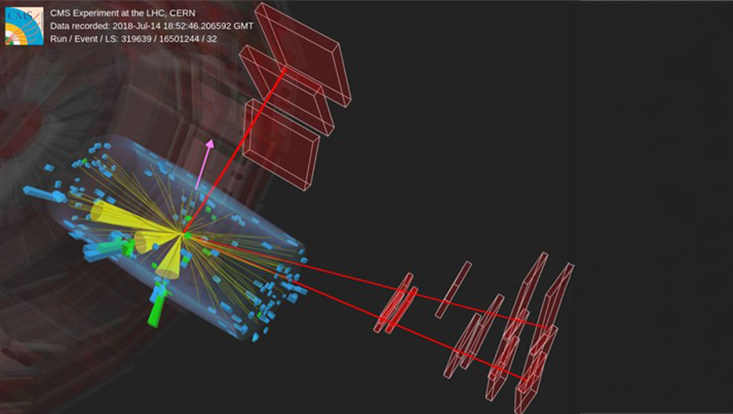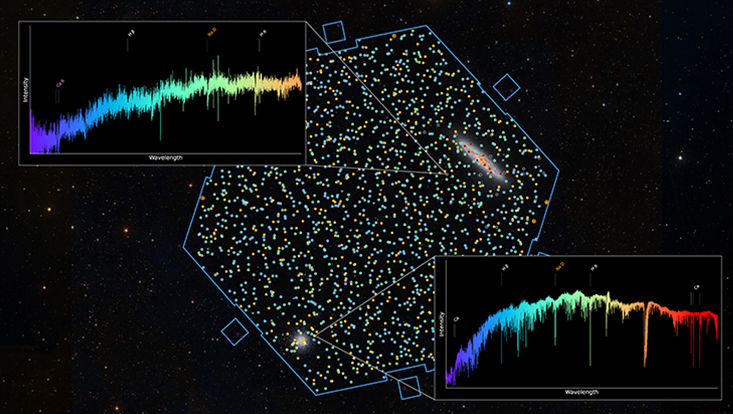and Natural Sciences
Into the underground:New Emmy Noether Group searches for Dark Matter
27 June 2019, by Heiko Fuchs

Photo: UHH/MIN/Fuchs
The largest part of our universe consists of so-called Dark Matter - a substance that is invisible and simultaneously holds galaxies together. A new Emmy Noether junior research group at the Department of Physics at the Universität Hamburg is now searching for Dark Matter using underground measurements and special detectors.
The new group will receive around 1.5 million euros in funding from the German Research Foundation over the next six years. The group is headed by Dr. Belina von Krosigk. Together with her group, she will not study visible matter - such as stars or planets - which accounts for around 15 percent of the mass of the universe. Rather, her research will focus on the remaining 85 percent, which must consist of a material that is invisible but has a very large mass.
Shielded in the underground
It has been tried for a long time to discover the so-called Dark Matter. Physicists explore the universe after it, try to generate it in large accelerators - or, like Dr. von Krosigk's group, they go underground. They are conducting research at the SNOLAB laboratory in Sudbury in eastern Canada, which is located two kilometres below the earth's surface and is optimally shielded from cosmic radiation and other sources of interference.
"We do not want to measure particles that are produced in the atmosphere and are well known. The deeper you go into the earth, the better the shielding works. At a depth of two kilometres, instead of 50 million of these cosmic particles per square metre and day, we only detect one particle, which could serve as the basis for our search for Dark Matter," explains the physicist.
You can see in the video what Dark Matter is and how a boat on a lake helps to imagine it.
Video: UHH/MIN/Fuchs
About the person
Dr. Belina von Krosigk comes from Erlangen, studied physics at the University of Hamburg and received her doctorate at the Technical University of Dresden. Already during her doctorate she worked in the SNOLAB underground laboratory in Canada, where she searched for rarely interacting particles and so-called neutrinos. As a postdoc, Dr. von Krosigk went to the University of British Columbia in Vancouver and worked in the same underground laboratory on the detection of Dark Matter. In July 2019, Dr. von Krosigk and her Emmy Noether group started research at the University of Hamburg.
"The existing infrastructure in particle physics at the University of Hamburg, the cooperation with DESY and the large number of excellent scientists make this location so unique, which was confirmed by the establishment of the 'Quantum Universe' excellence cluster," said von Krosigk.
The Emmy Noether Program
The Emmy Noether Programme of the German Research Foundation (DFG) offers particularly qualified young scientists the opportunity to qualify for a university professorship over a period of six years by leading a junior research group on their own responsibility.


